Black Butterfly House sits a few miles from downtown Minneapolis, a picturesque home with a garage, back deck, trimmed bushes, and modest front yard facing the main road. Its petite gray frame and gable roof don’t stand out among other homes on the street. But inside, it’s far from ordinary.
Amber can hardly believe the journey that led her to buy the house last year. She was conscious that as a Black woman, she was statistically much less likely to become a homeowner. As the daughter of a single mother and schoolteacher in Mississippi, she felt the impacts of poverty in her life. Though she found joy in her extended family relationships as a teen, her mother's choice to move to Minnesota for better pay left young Amber isolated and facing new challenges.
Navigating turbulent teenage years, Amber was involved in a fight on school property. She was charged as an adult at age 15 and received three felony charges. While other teenagers focused on learning how to drive and planning for life after high school, Amber faced the daunting thought of prison time and was sent to a rehabilitation center.
"The court deemed my household 'unstable,' so I was told I could never go home again," Amber says.
FINDING HOME
After spending time in rehabilitation centers, Amber was transferred to a group home for young women in Minnesota and continued attending high school. While there, she was bullied and called racial slurs. "I was the only Black girl at the school," Amber remembers.
Feeling alone and unloved, Amber often sought comfort and security in men, but those relationships were toxic. With support from a close friend, Amber found her footing and broke out of that cycle. "It was really hard to navigate, being so young, having to be independent and just figure it out on my own," she admits. "You have to know your worth to realize you deserve better, to take yourself out of that situation."
Then, longing for a fresh start, Amber made a life-altering decision to move into an independent living home. There, she discovered what she'd been needing: resources and a support system. A job coordinator helped her apply for work. A housing coordinator helped her look for her own place. A career specialist sat with her during her first interview: a paid internship that turned into a full-time job that Amber held for six years. A court-ordered career specialist, spiritual mentor, probation officer, and other staff were all available under one roof to guide Amber.
For once, Amber realized she wasn't navigating her next steps alone.
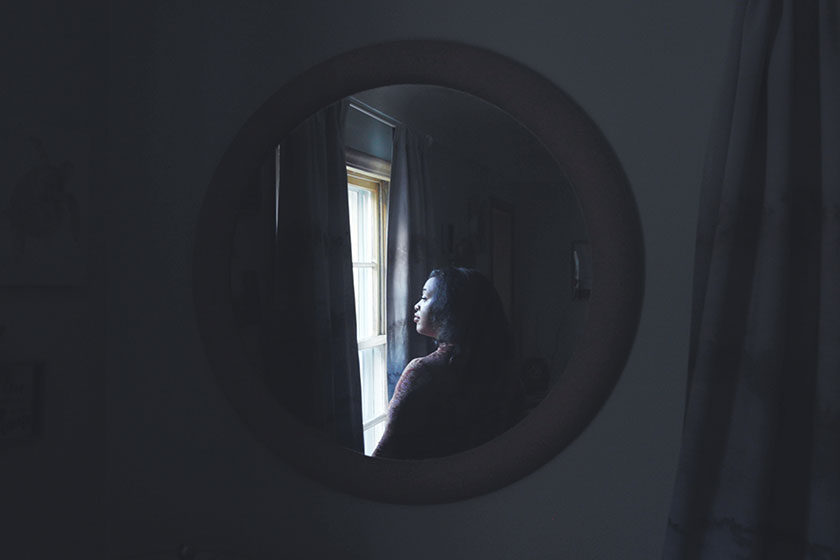
'It was really hard to navigate, being so young, having to be independent and just figure it out on my own. You have to know your worth to realize you deserve better, to take yourself out of that situation.'
THE SECOND CHANCE HOUSE
Through her support system, she heard about the Prison Fellowship Academy®, a yearlong program where incarcerated men and women learn to embrace renewed purpose and biblically based life principles, with the help of compassionate coaches and targeted curriculum. Since Amber had never been incarcerated, she had not participated in the Academy. But, she found a place to belong with the Minneapolis-area Academy alumni group, where formerly incarcerated Academy graduates meet weekly to support and encourage one another in reentry and in life.
The women in the alumni group welcomed her, mentored her, and provided a supportive community. Amber shared similar experiences and struggles with the returning citizens: living with a criminal record, experiencing abuse and loss, recovering from abandonment and shame.
"We go to church together, we eat together, and when we do things together, it's a beautiful family," says Amber. "It's connection. I'm so thankful that God put these women in my life."
When Amber experienced loss and grief, the Academy women listened and offered comfort. When she needed prayer, they lifted her up. Through these women, Amber found hope, purpose, and community support. Soon, she began to envision a future where she could help others do the same.
All the while, Amber had been saving up money for years to buy a house. She didn't have much, but she had enough to begin her dream project: a group home for women, which she could decorate, as someone with a passion for interior design and floral arrangements. She bought a house that was previously owned by a local nonprofit—the first home she ever purchased.
Amber named it the Black Butterfly House, referring to the transformation and renewal of a fresh start. In many cultures, the black butterfly is considered a symbol of renewal or new life—the kind of transformation that brings a beautiful outcome after difficult times.
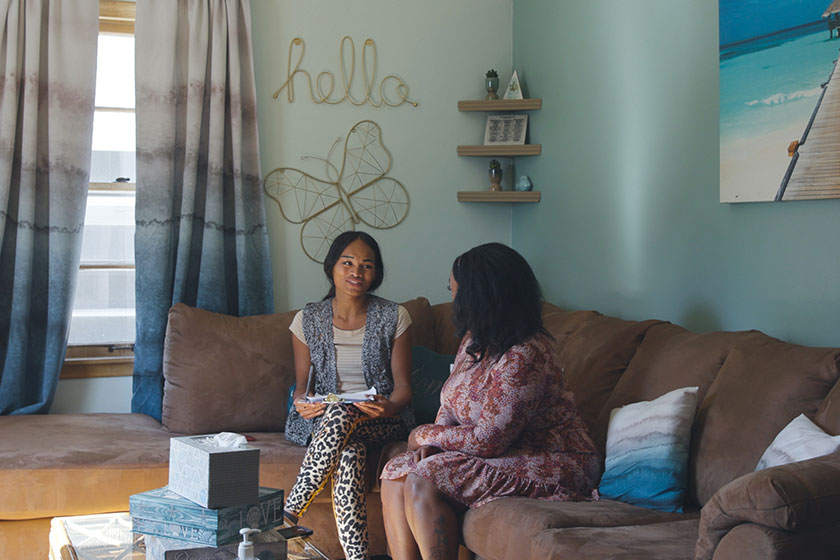
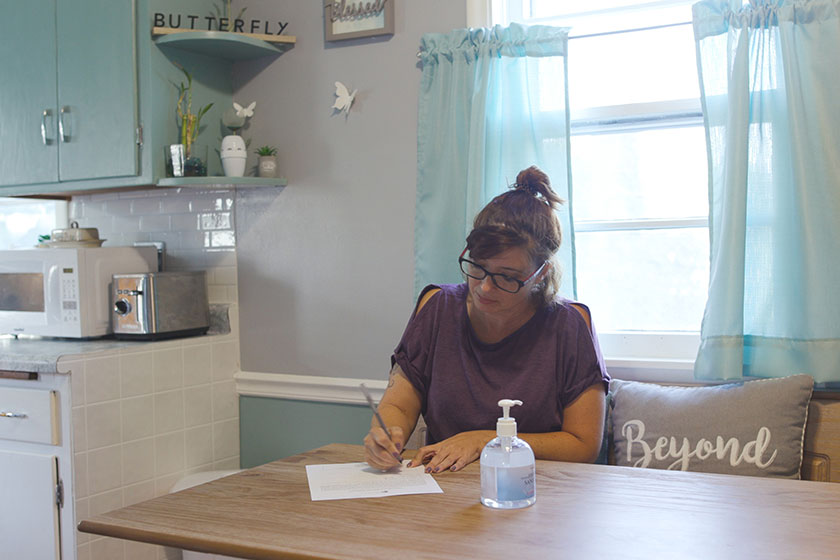
WHAT IS TRANSITIONAL HOUSING?
Transitional housing, also known as a "halfway house" or reentry home, is a living place for those coming out of prison and/or those who need help recovering from substance abuse or other addictions. The goal of transitional housing is to provide returning citizens a safe and structured place as they acclimate back to society.
'We go to church together, we eat together, and when we do things together, it's a beautiful family. It's connection.'
EMPOWERING GOOD CITIZENS
Amber painted and furnished the home herself, lending each wall her personal touch with calming blues and inspirational quotations. As she transformed the house into a home, the Academy alumni group was a steady source of strength for her. The women and their families helped to make Black Butterfly into a home, where Amber officially serves as owner and CEO. She hired an Academy graduate, Tamara, as housing manager.
"Everybody has a past, and I don't want to dwell there," Tamara says. "My role with residents is to be encouraging and to see what kind of help they need."
In summer 2021, Amber and Tamara welcomed the first resident into the home. Amber hopes to provide housing for up to 10 women, all from adverse situations like incarceration, addiction, or homelessness. Her goal is welcome residents for six months at a time, then reevaluate whether they should stay longer or move on.
With a "faith-friendly approach to achieving success," Black Butterfly guides local women to find stable housing, fulfill court obligations, manage their own finances, remain substance-free, develop healthy relationship habits, and reconnect with their community.
"We'll ask, 'How much longer do you need? What can we do to help you get to where you’re trying to go?'" Amber explains. "Our job is to prepare them for the real world and put them back into society as productive members."
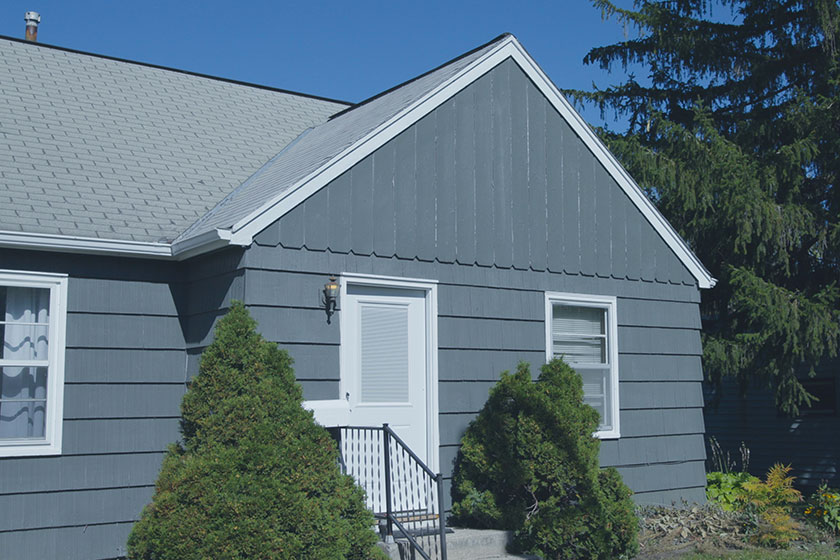
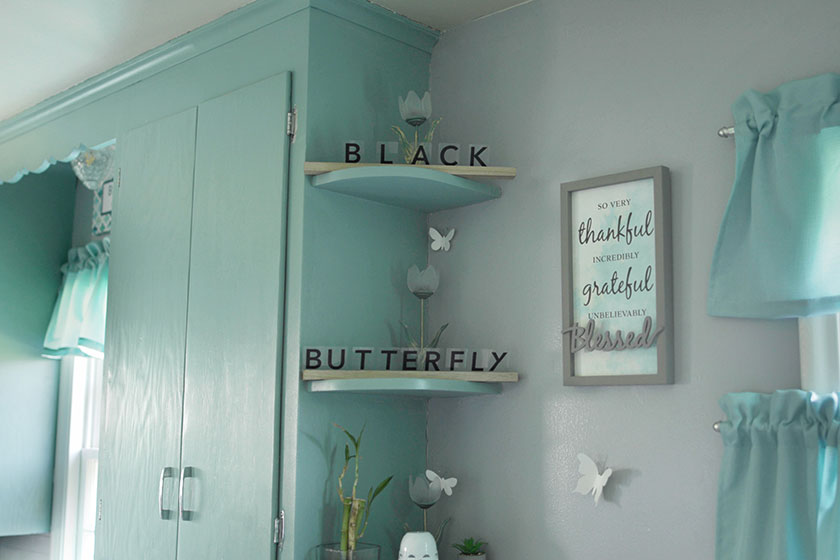
'Our job is to prepare them for the real world and put them back into society as productive members.'
'I AM THE BLACK BUTTERFLY'
When she's not at the house, Amber works as the executive assistant for a vice president at a Fortune 500 company. She's putting to good use her degree from Metropolitan State University in St. Paul, Minnesota, where she studied business administration, human services, and project management.
But, beyond the office job, she feels her calling is the Black Butterfly House. Within those walls, she aspires to see many women break free from their pasts in a butterfly-like transformation—with the help of a stable support system and strong faith in God.
Amber knows that transformation is possible because it's part of her own story. And, now a leader in her community, she stands as living proof that hope is always within reach.
"I'm the black butterfly. I went through all these different stages, just like the butterfly, … and I want these women to grow to be beautiful adult butterflies. Everybody needs another chance, and this is a house for transformation. I just want to let these ladies know, 'You're beautiful, you're loved, and you can do and be whoever you want to be.'"
'You're beautiful, you're loved, and you can do and be whoever you want to be.'